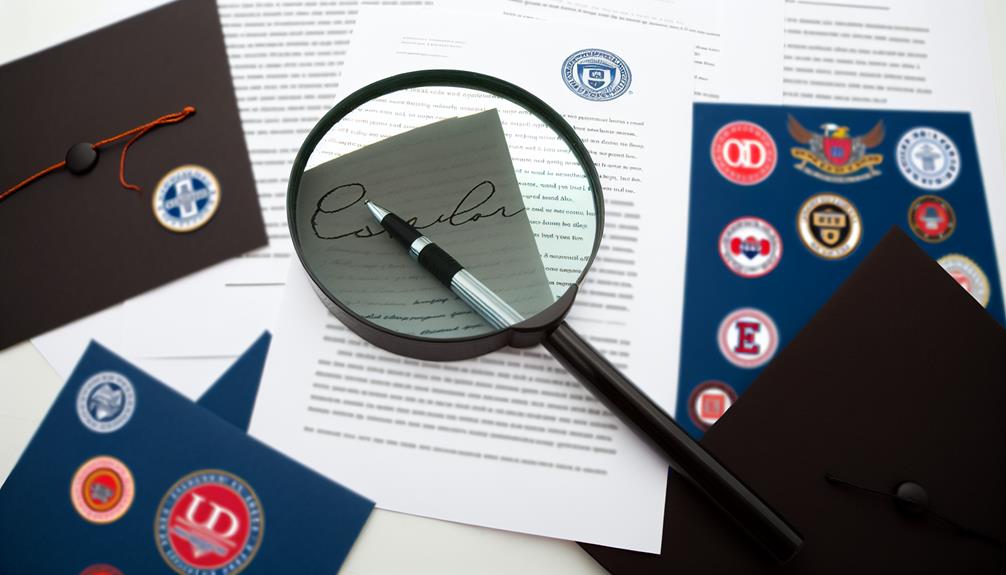Did you know that every year, more than 2 million students apply to colleges across the United States? That's a lot of competition you're up against.
So, how do you set yourself apart? What's the secret sauce that makes your college admission essay stand out from the sea of other applications?
Well, it isn't just about showcasing your academic achievements or extracurricular activities. There's a lot more that goes into crafting an essay that grabs the attention of the admissions officers.
Stay with me and we'll unpack the ingredients of a successful college admission essay that could put you on the fast track to your dream school.
Understanding the Admission Essay Purpose
To succeed in your college application, it's essential to understand that the purpose of your admission essay isn't just to tell your story, but also to demonstrate your ability to choose meaningful experiences and present them in a compelling, insightful way. The Essay Objectives aren't about boasting your achievements or pitying your circumstances, but rather showcasing your unique perspective and growth.
It's not enough to just share a story. You've got to connect it to your aspirations, values, and the specific Admission Priorities of the college you're applying to. Show them why you're a good fit, why you belong.
You're not just a collection of grades and test scores; you're a potential contributor to their college community.
Crafting Your Personal Narrative
Crafting your personal narrative requires you to delve deep into your experiences, sift through them, and select those moments that not only define you but also align with the values and expectations of your chosen college. Remember, you're not just showcasing your life's story; you're demonstrating your ability to structure a coherent narrative, to reflect, and to grow from experiences.
To make your essay compelling, you must utilize a strong narrative structure. This means having a clear beginning, middle, and end. Start with an engaging introduction to hook the reader, followed by the body, where you'll share your experiences and lessons, and culminate with a persuasive conclusion that ties everything together.
Finding your authentic voice is vital. It's what makes your essay unique and genuine. Avoid mimicking others; instead, be true to yourself. Write in a way that sounds like you, not like an encyclopedia. Remember, authenticity resonates with readers.
Lastly, don't forget to proofread and revise. It's not just about correcting grammar and punctuation, but also about ensuring your narrative flows smoothly and your voice remains consistent throughout. Crafting a powerful personal narrative demands time and patience, but the payoff is worth it: a college admission essay that stands out.
Key Elements of a Compelling Essay
Diving into the core of a compelling essay, you'll find five essential elements that can turn your college admission essay from good to outstanding.
First, a clear and logical essay structure is pivotal. It helps guide your reader through your thoughts and ideas, creating a smooth reading experience.
Next, topic originality can't be overstated. Stand out with a unique angle, making your essay intriguing and memorable.
Language usage is crucial. Your vocabulary choice should reflect your personality while maintaining a professional tone. Make it relatable yet authoritative.
Fourth, a compelling essay needs concrete evidence. Support your statements with examples, anecdotes, or experiences. This adds credibility and makes your essay more believable.
Lastly, your essay should provoke thought. Leave the reader pondering, challenge their views, or introduce new perspectives. This engagement ensures your essay lingers in their mind long after reading.
In short, a successful essay hinges on a well-crafted structure, original topic, precise language, supported evidence, and thought-provoking content. Master these elements, and you'll craft a compelling essay that resonates with admission officers.
Avoiding Common Essay Mistakes
Steering clear of common essay pitfalls can significantly bolster your chances of admission, making your piece both captivating and effective. Being aware of such traps and making a conscious effort to avoid them will reflect positively on you and your writing skills.
Firstly, understand plagiarism consequences. You might think that borrowing a sentence or two from an impressive essay you found online won't hurt. However, plagiarism is a grave academic offense. Colleges use sophisticated software to detect copied content, and getting caught could lead to your application being outright rejected. Be original, your authentic voice is what admission officers are looking for.
Secondly, steer clear of overused clichés. Phrases like 'I want to change the world' or 'I've learned more from my failures than my successes' have been used to exhaustion and do little to differentiate you from other applicants. Instead, share your unique experiences and perspectives.
Seeking Feedback and Final Edits
While it's crucial to sidestep clichés and uphold originality in your essay, it's equally important to seek out constructive criticism and make necessary edits to ensure your work is polished and compelling. This is where peer reviewing and professional guidance come in.
Peer reviewing is a powerful tool in the writing process. Don't be shy to share your essay with classmates, friends, or family members. They can provide a fresh perspective, point out any inconsistencies, or suggest improvements. They may even catch errors you didn't notice.
However, remember that peers aren't experts. This is where professional guidance becomes invaluable. Seek advice from teachers, counselors, or essay writing professionals. They can offer expert feedback, help you refine your narrative, or identify areas that need more depth. They'll also ensure that your essay aligns with the expectations of college admission officers.
Conclusion
So, you've got the skinny on crafting a winning college admission essay. Remember, it's not just about impressing admissions officers. It's your story, your voice. Keep it personal, compelling, and error-free.
Don't fear feedback—it's a crucial part of the process. With these guidelines, you're set to deliver an essay that truly represents you and paves the way to your dream college.
Now, go nail it!








